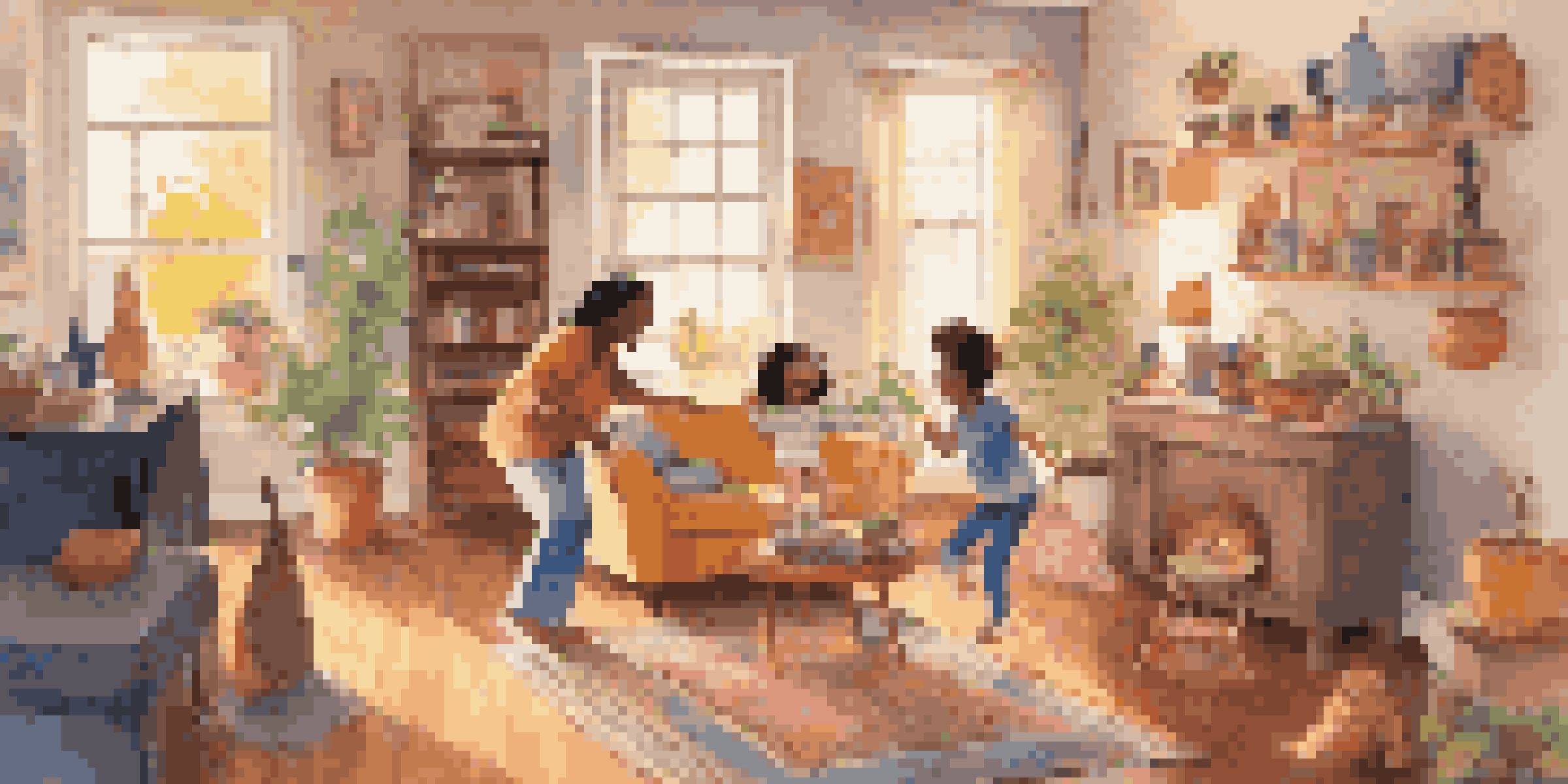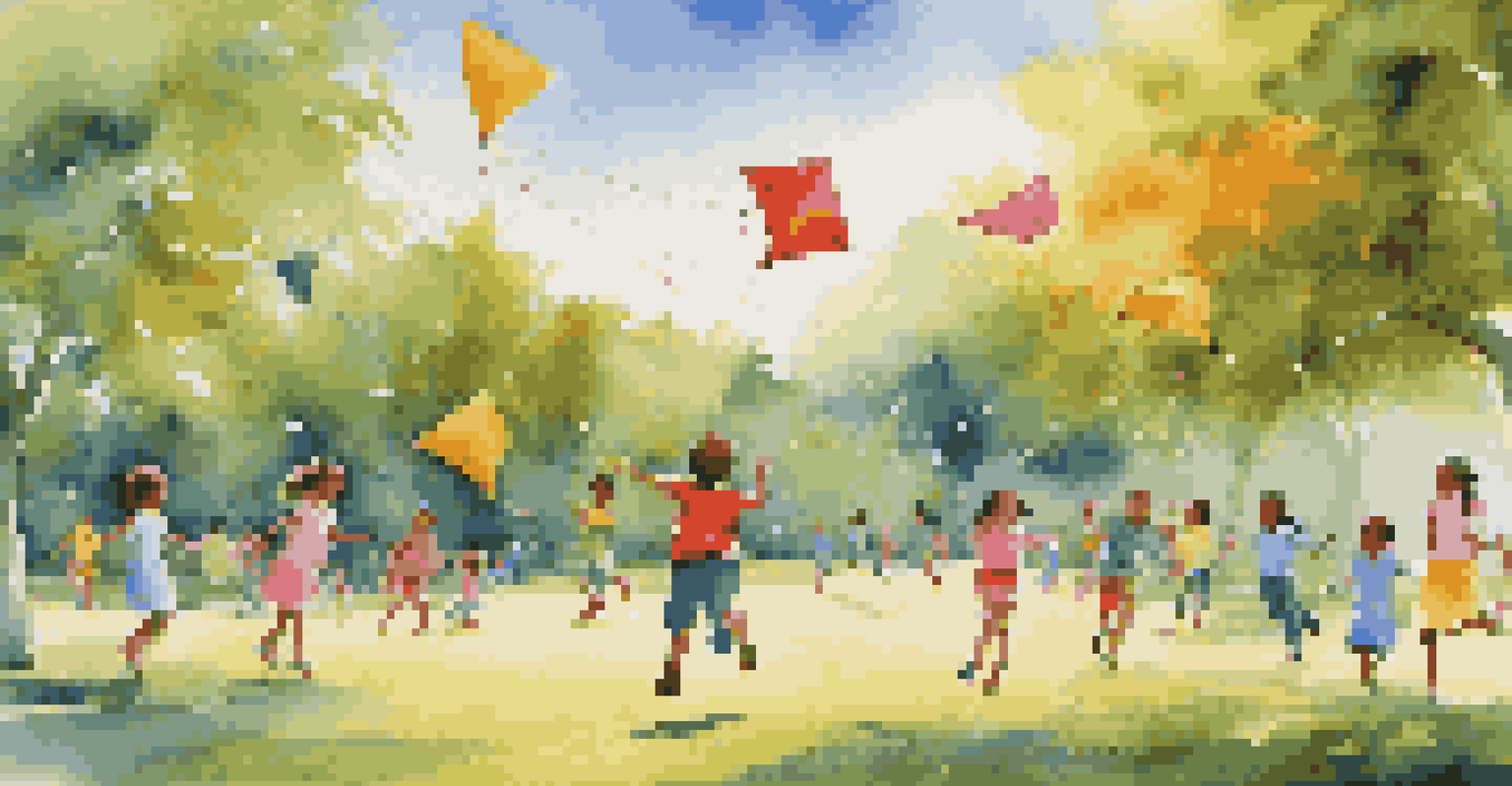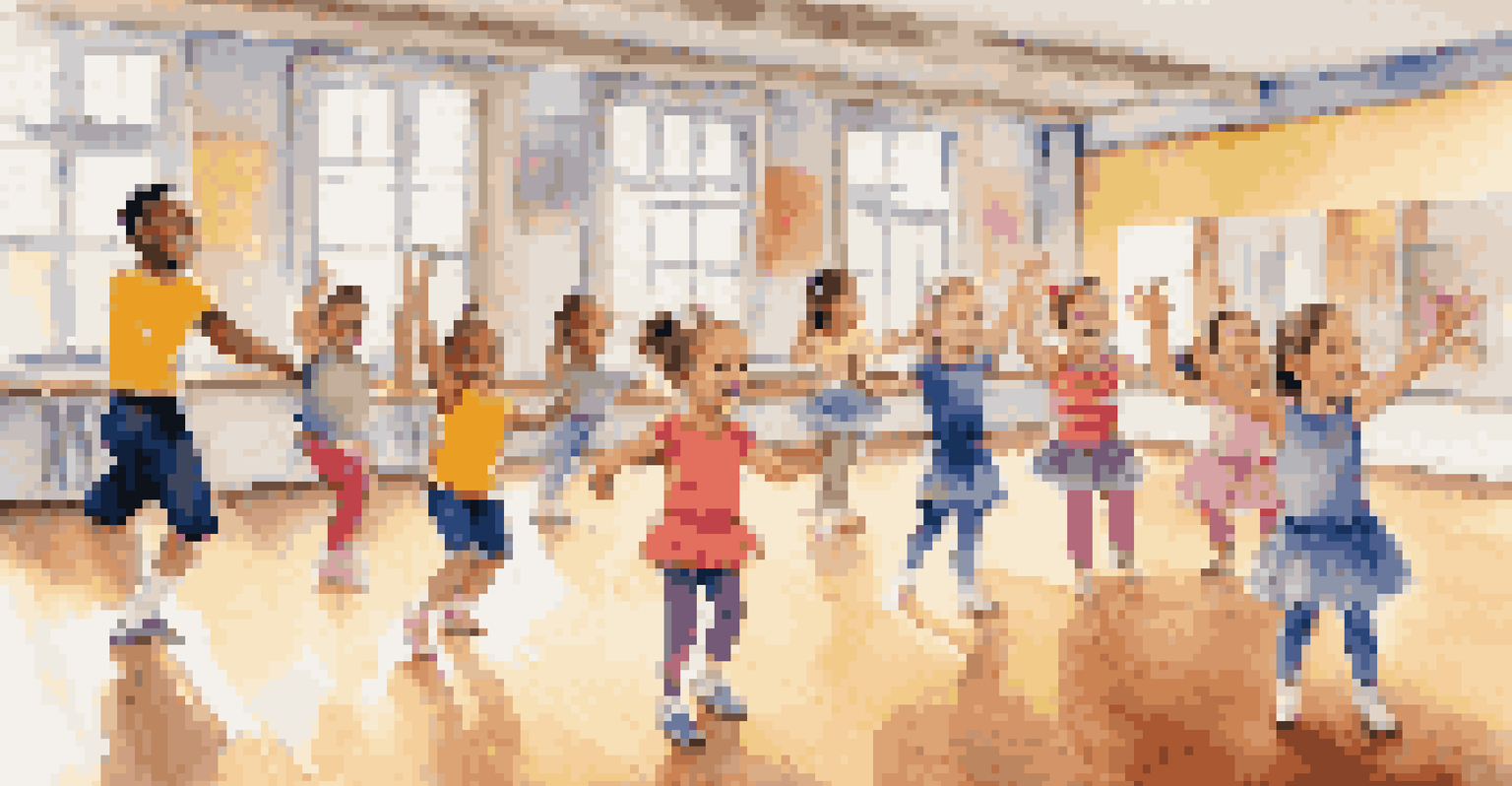The Role of Parents in Dance and Play Development

Understanding the Importance of Dance and Play
Dance and play are not just fun activities; they are crucial for a child's development. Engaging in these activities helps children improve their motor skills, creativity, and social interactions. When children dance or play, they learn to express themselves and explore their environment in a safe and joyful way.
Play is the highest form of research.
Moreover, these activities foster emotional well-being. They provide an outlet for children to release energy and express their feelings. This is especially important in a world where kids often face various pressures and challenges.
By understanding the significance of dance and play, parents can better appreciate their role in facilitating these experiences. They become key players in nurturing their children’s growth through supportive participation and encouragement.
How Parents Can Encourage Dance Participation
One of the best ways parents can encourage their children to dance is by creating a fun and inviting atmosphere at home. This might include playing a variety of music genres and inviting kids to dance freely. When parents join in, it not only makes the experience more enjoyable but also strengthens the parent-child bond.

Additionally, enrolling children in dance classes can expose them to structured learning and social interaction. Parents can help by researching local classes that match their child's interests, whether that's ballet, hip-hop, or jazz. This commitment shows children that their interests are valued and supported.
Dance and Play Enhance Development
Engaging in dance and play is vital for children's motor skills, creativity, and emotional well-being.
Lastly, praising their efforts, regardless of skill level, can significantly boost a child's confidence. Encouraging words help children understand that the joy of dancing comes from enjoying the process, not just mastering the moves.
The Role of Play in Child Development
Play is often described as a child's work, and it's essential for cognitive and social development. Through play, children learn problem-solving skills, teamwork, and communication. These skills are foundational for their future success in school and beyond.
Dance is the hidden language of the soul.
Parents play a pivotal role in facilitating play by providing a variety of toys and activities. Whether it's outdoor games, puzzles, or imaginative play with costumes, offering diverse options can help children explore different interests. This variety also keeps playtime exciting and engaging.
Encouraging unstructured play is equally important. Allowing children to create their own games fosters creativity and independence. Parents can step back and let their kids lead, stepping in only to guide when necessary, which empowers children to take charge of their play experiences.
Creating a Safe Environment for Exploration
Safety is paramount when it comes to dance and play. Parents need to ensure that their children have a safe space to express themselves physically. This can mean removing hazards in the home or providing appropriate gear for outdoor activities.
Moreover, emotional safety is just as important. Creating an environment where children feel comfortable expressing their feelings and ideas can significantly impact their willingness to engage in dance and play. When kids feel secure, they are more likely to take risks and try new things.
Parents Foster Participation
Creating a supportive environment and actively engaging in dance helps children feel valued and boosts their confidence.
Regularly discussing boundaries and encouraging open communication about feelings can help create this safe space. Parents should reassure their children that it's okay to express themselves and ask questions, reinforcing the idea that exploration is a vital part of learning.
Modeling Active Participation
Children often emulate the behaviors they see, making parental involvement crucial. When parents actively participate in dance and play, they set a powerful example. This not only encourages kids to join in but also promotes a healthy lifestyle that values physical activity.
For instance, if a parent enjoys dancing, showing that enthusiasm can inspire their child to dance as well. Whether it’s a spontaneous dance party in the living room or a family outing to a dance performance, these shared experiences create lasting memories.
Additionally, modeling positive attitudes towards physical activity can instill lifelong habits. When parents express joy in movement and play, children are likely to adopt similar attitudes, leading to healthier lifestyles as they grow.
Fostering Social Connections Through Dance and Play
Dance and play provide excellent opportunities for children to build social skills. Group activities, whether in classes or during playdates, teach children how to interact with peers, share, and cooperate. These experiences are invaluable for developing lasting friendships and learning social norms.
Parents can facilitate these connections by organizing playdates or enrolling their children in group activities. This not only expands a child's social circle but also helps them practice important interpersonal skills in diverse settings.
Encourage Individual Interests
Recognizing and supporting children's unique preferences in activities empowers them and fosters autonomy.
Moreover, through dance and play, children learn to navigate emotions in social contexts. They experience joy, frustration, and teamwork, which are essential for emotional intelligence. Parents can support this by discussing experiences after playdates or classes, reinforcing positive interactions and helping children process their feelings.
Recognizing and Supporting Individual Preferences
Every child is unique, with different interests and talents. Recognizing and respecting these individual preferences is crucial in nurturing a child's passion for dance and play. Parents should observe their children’s reactions to various activities and encourage them to explore what they love.
This may mean trying out different styles of dance or types of play until the child finds their niche. Allowing children to have a say in choosing activities empowers them and fosters a sense of autonomy. It’s important for parents to listen and support their choices, even if they differ from their own interests.

Furthermore, being patient and understanding during this exploration phase is essential. Children may change their preferences frequently, and that's perfectly normal. Parents should celebrate this journey of discovery rather than pressuring their children to stick with any one activity.